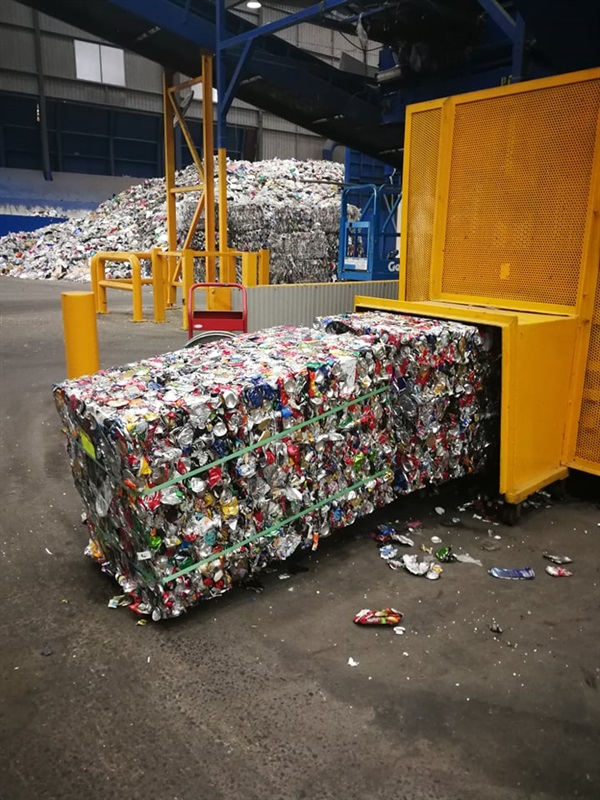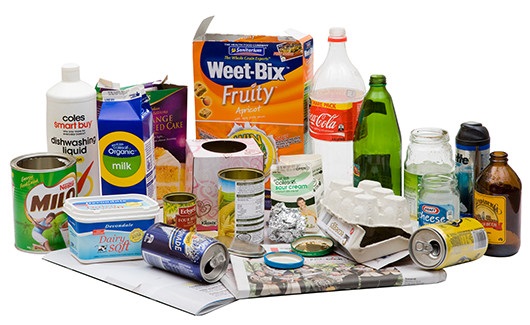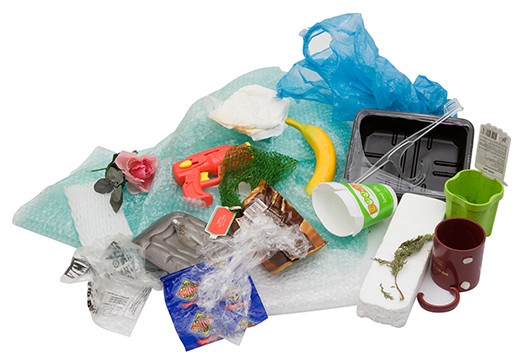Recycling collection (yellow lid)
Find your Recycling Collection Day
Recycling service
Most household packaging waste is recyclable and need not end up in your garbage bin. You can reduce the volume of waste created in the home simply by using our service to recycle as much as you can. Recycling will also help to conserve our environment and reclaim valuable resources.
Did you know that every tonne of recycled paper used saves 13 trees, 2.5 barrels of oil, 4,100kWh of electricity, 4 cubic metres of landfill and 31,780 litres of water?
To find your recycling collection day, search for your property in our Recycling Collection Day map.
Please keep recycling
Despite news out of China about their importing of recyclable material, Woollahra Council’s kerbside recycling program remains in place. We are committed to maintaining and improving this system and encourage all residents to continue to use the service.
Some of Woollahra Municipality’s recycling is processed in Australia, though a proportion of it is exported. The Chinese government recently tightened its rules for acceptance of recyclables imports, meaning a new national solution for recyclable waste is required.
We support the Save our Recycling campaign run by Local Government NSW to invest in onshore infrastructure for recycling and will be working in consultation with the recycling industry and state and federal governments to develop future recyclables strategies to continue to provide the best outcomes for the community, while helping to conserve our environment and reclaim valuable resources.
If you have any questions about this service, please contact our team on 9391 7000 or email wasteadmin@woollahra.nsw.gov.au.
Thank you for helping us divert waste from landfill.
What to do if your bin is lost, damaged or stolen?
If your bin has been lost, damaged or stolen, contact us online or call Council's Customer Service Centre on 9391 7000. A Customer Services Officer can assist you in placing an order and a new bin will be delivered within 7 working days.
Missed services
If your bin has not been collected for any reason on the scheduled collection day, contact us online or call Council's Customer Service on 9391 7000 and provide details. Your call will be recorded in our Customer Request System and collection arranged within 3 working days.
How to ensure your recycling is collected
- Ensure your recycling is presented in an official Council issued bin or it will not be collected.
- Wheel your bin to the kerb the night before service in an accessible position with the front facing the road (handles facing rear towards your house).
- Remove your bin from the kerb within 12 hours of being collected.
- Store bins on your property. Do not store bins in the street, footpath or in a back lane.
- Do not overfill your bin. Make sure the lid is closed to avoid spillage and attracting vermin.
- Do not put additional bundles or bags of garbage next to your bin. It is considered as illegal dumping, it will not be collected and could incur a fine exceeding $535.
- Do not put building materials, such as sawdust, bricks, tiles or timber, in your bin.
How does this service work?
All residents have been provided with a 120L or 240L co-mingled yellow-lid recycling bin. This means all recycling can go together into the same bin.
Recycling is collected weekly on the same day as your domestic waste and food and garden organics service and delivered to VISY for processing. VISY processes and organises recycling for most of our items in Australia, however some items are sent to markets overseas.
When the recycling arrives at the recycling facility, it goes through an automated process where conveyors and specialised machinery separate mixed recycling into single streams. The items are baled, then some items will be further process/recycled on site including paper and plastics. Other items like glass and steel/aluminium are sent to other facilities within NSW and nationally to be processed and recycled.
Take a look at this video for what can be recycled and how recycling is managed and processed.
Council can also provide recycling posters/brochures for unit blocks upon request. Phone Customer Service on 9391 7000 for more information.

Aluminium cans after being sorted and baled
What can we recycle?
In general most of the items you purchase from a supermarket come in a form of packaging that can be recycled using your recycling bin at home. Most recyclable items are found in your kitchen, bathroom and laundry. This includes packaging made from:
- Paper and cardboard.
- Steel and aluminium cans, foil (scrunched into a fist-sized ball) and tins.
- Foil needs to be collected and wrapped into a ball (preferably the size of a golf ball or bigger), or smaller pieces of foil can be placed inside an aluminium can - this helps the wrappers stay on the waste conveyor belt so they can be recycled.
- Plastic bottles, tubs and containers.
- Glass bottles and jars.
- Aerosol spray cans, (eg deodorant, fly spray, oil spray, clothing spray, mosquito repellent) as long as the aerosol cans are empty.

Download the VISY comprehensive recycling guide(PDF, 1MB)
If you're still unsure, download the free Recycle Mate app which has been designed to help you recycle right or visit Planet Ark's Recycling Near You for more information about recyclable items.
Recycling rules
We need your help to make sure all items in your bin are acceptable for recycling. Here is what you need to do:
- Make sure all bottles, jars and tubs are empty of food and liquid before placing them in your bin. You can give them quick rinse, but it is not essential.
- Plastic bottle lids can be screwed back onto empty, crushed plastic bottles. Please do not recycle loose bottle lids smaller than a 50c piece.
- Crushing plastic bottles and cardboard boxes will allow for more space in your recycling bin, but not essential.
- Metal bottle lids must be removed from glass bottles and placed into the recycling bin separately. Please do not recycle loose bottle lids smaller than a 50c piece.
- Paper bags - remove the handles if they are not made of paper. For example, handles made from ribbon or twine.
- Remove any plastic wrap from newspapers/magazines before placing them in your bin.
- Place items loosely in your bin.
- Do not put recycling into plastic bags.
What can't we recycle?
- Plastic bags: these should go in your red lid general waste bin until further notice. (The recycling program at Woolworths and Coles supermarkets for recycling through REDcycle is currently suspended.)
- Polystyrene foam/packing foam (even if numbered)
- Single use plastic plates, cups and cutlery (even if numbered)
- Plastic Tupperware/storage containers (even if numbered)
- Milk and juice cartons (plastic and foil lined cardboard like milk cartons and juice boxes)
- Shredded paper
- Coat hangers
- Syringes
- Toys
- Loose Bottle lids (smaller than 50 cent piece)
- Tissues/napkins
- Meat trays
- Waxed fruit boxes
- Plastic plant pots (even if numbered)
- Plates/crockery
- Mirror/window glass
- Batteries
- Paint tins
- Plastic or glass roll-on deodorants

These materials cannot be recycled - place them in your rubbish bin
Be careful not to contaminate your recycling bin or crate by including materials which cannot be recycled. Contamination may result in your bin being rejected from collection, increased collection costs and material intended for recycling will have to be sent to landfill.
To find your recycling collection day, search for your property in our Recycling Collection Day map.